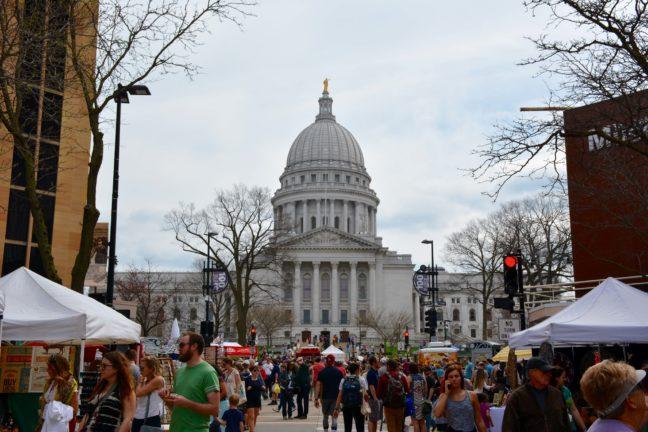Governor Tony Evers announced his 2023-2025 proposed biennial budget Tuesday, which would divert 20% of Wisconsin’s sales tax revenue back to local communities as shared revenue, according to a press release from the Office of the Governor.
Shared revenue includes unrestricted aid for counties and municipalities, utilities and the Expenditure Restraint Program.
The concept of shared revenue has changed greatly from when it was first instated, Dane County Chief Financial Officer and Controller Charles Hicklin said.
“Initially, shared revenue was put in place as a way to equalize resources among communities around the state and it used to be driven by a formula that favored communities that had lower property values than ones that had more,” Hicklin said. “So, richer communities got less shared revenue and poorer communities in terms of their property values got more.”
President Biden visits Madison area, addresses trade workers
This formula method was changed in the last two decades to a flat, per-capita amount of shared revenue based on what communities were previously getting — richer communities kept getting the same level of revenue, while poorer ones were frozen at the same amount that they had always gotten, Hicklin said.
Hicklin also said the money labeled as “shared revenue” has no strings attached to it — it could be used for any services that the city provides.
According to the press release, this plan would send more than half a billion dollars annually to communities to help fund investments in local health services, transportation, first responders and other services. This proposal would mean the most significant aid increase to municipalities and counties in decades.
Hicklin also said the plan outlined in the press release does not include details about whether the shared revenue would replace the shared revenue that cities already get, or if it would be an addition. This makes it hard to judge exactly what Dane County would use this money for because they are not sure how much money they would get, Hicklin said.
“Cities across the state need more state aid to provide critical local services, and an increase in aid to cities has to be substantial to meet the needs of our communities,” Madison Mayor Satya Rhodes-Conway said in an email statement to The Badger Herald. “I am glad that both the Governor and the legislature are working on this critical issue, and I am hopeful that we will see the aid that cities need in the adopted budget.”



















